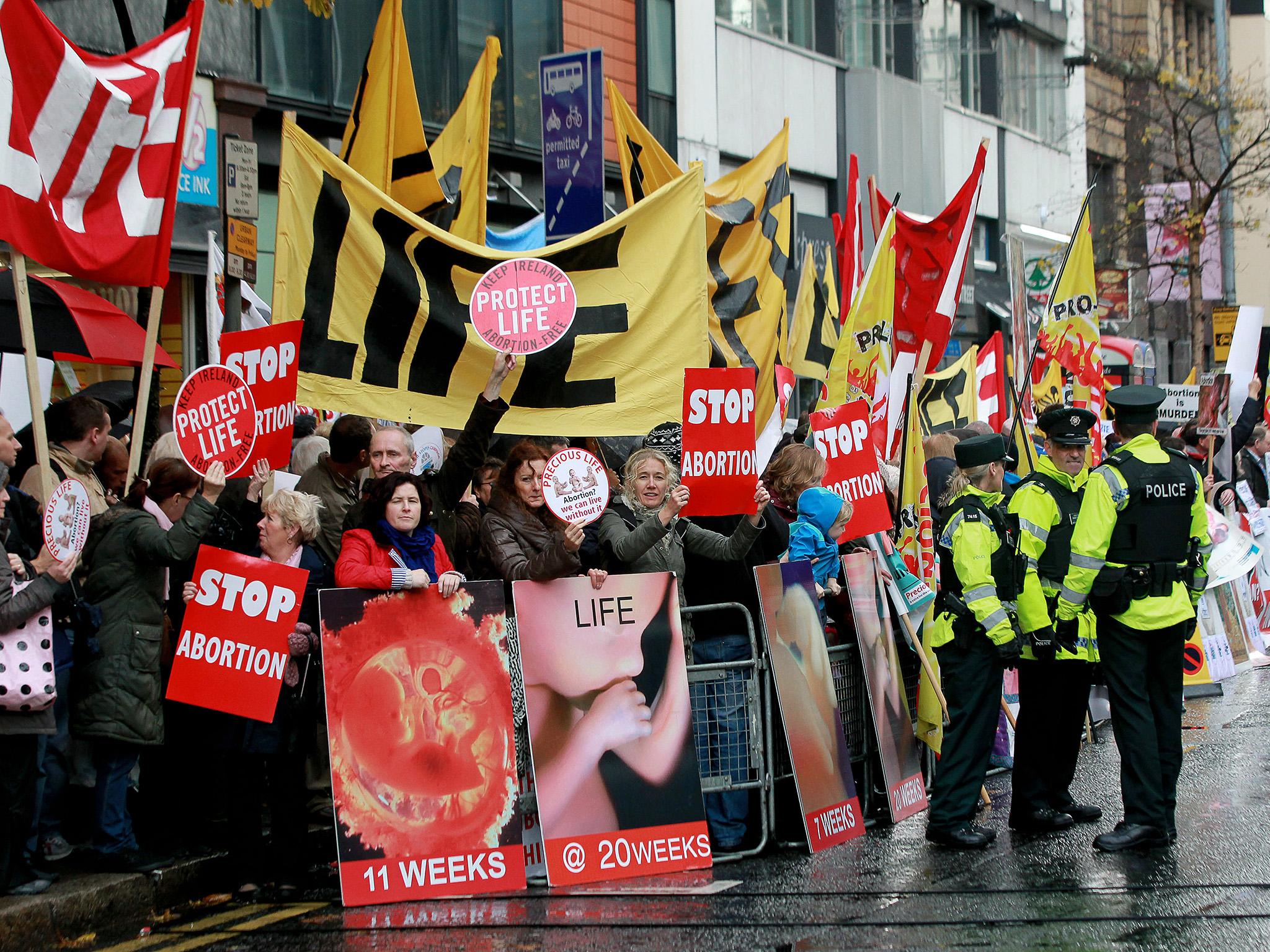Abortion clinic 'buffer zones' plan to stop protesters rejected by the government in surprise move
Former home secretary Amber Rudd said it was 'unacceptable' that anyone should feel intimidated at an abortion clinic

Your support helps us to tell the story
From reproductive rights to climate change to Big Tech, The Independent is on the ground when the story is developing. Whether it's investigating the financials of Elon Musk's pro-Trump PAC or producing our latest documentary, 'The A Word', which shines a light on the American women fighting for reproductive rights, we know how important it is to parse out the facts from the messaging.
At such a critical moment in US history, we need reporters on the ground. Your donation allows us to keep sending journalists to speak to both sides of the story.
The Independent is trusted by Americans across the entire political spectrum. And unlike many other quality news outlets, we choose not to lock Americans out of our reporting and analysis with paywalls. We believe quality journalism should be available to everyone, paid for by those who can afford it.
Your support makes all the difference.The government has rejected calls for the introduction of “buffer zones” barring anti-abortion protests outside abortion clinics across the UK.
Campaigners have called for protest-free areas to be implemented outside clinics to protect women attending the services.
The home secretary Sajid Javid’s predecessor, Amber Rudd, ordered an an in-depth assessment to understand the scale and nature of the anti-abortion protests and establish if more needs to be done to protect clinic users.
Ms Rudd previously said it was “unacceptable” that anyone should feel intimidated at an abortion clinic.
Mr Javid has now said bringing in protest-free areas outside clinics to stop the harassment of patients “would not be a proportionate response”.
Despite the fact the Home Office review found examples of harassment and damaging behaviour, he said these activities were “not the norm”.
He said: “Having considered the evidence of the review, I have therefore reached the conclusion that introducing national buffer zones would not be a proportionate response, considering the experiences of the majority of hospitals and clinics, and considering that the majority of activities are more passive in nature.”
In a written statement, Mr Javid said the review had collected evidence that showed the actions of protesters had left patients distressed and caused some to rebook their appointments and not to follow medical advice.
He said that in some of these cases, protesters distributed out model foetuses, displayed graphic images, followed people, blocked their paths and even went so far as to assault them.
But the home secretary said the review showed these activities were “not the norm” and most anti-abortion activities were “more passive”, including praying, handing out leaflets, and showing banners.
According to the review, in 2017, 363 hospitals and clinics in England and Wales performed abortions. Of these, 36 experienced anti-abortion demonstrations.
Mr Javid said there was already existing legislation – such as the Public Order Act 1986 – which limits protest activities that harm others.
Anti-abortion groups have said banning peaceful protests or the distribution of information would be “ludicrous”.
Responding to the home secretary’s written statement on the Abortion Clinic Protest Review, Yvette Cooper MP, chair of the Home Affairs Select Committee, said:
“This is a very disappointing response from the home secretary. The whole point of having this review was because existing powers are not working or are proving cumbersome and difficult for councils or the police to use.
“Women shouldn’t ever face intimidation and harassment for going to a health care appointment that is their right.
“New action is needed to prevent this kind of targeting of patients and staff right by the clinic entrance. The government has a responsibility to make sure women’s health care rights are being respected.”
Dr John Chisholm, the British Medical Association’s medical ethics committee chair, also criticised Mr Javid’s decision.
He said: “We welcome the government’s consideration of the ongoing harassment and intimidation of patients and staff outside confidential abortion services, but we have serious concerns that the home secretary has not taken the necessary decisive steps to address this issue at a national level today.
“We appreciate that there are a wide range of views about abortion but intimidating staff who are providing a lawful and necessary service, and approaching women accessing these services who may already feel vulnerable is unacceptable.
“The government needs to take steps at a national level so harassment and intimidation can be stopped swiftly and straightforwardly in the future.”
Ealing Council marked a 100-metre protest-free “buffer zone” outside a Marie Stopes clinic in April.
Richard Bentley, managing director at Marie Stopes UK, condemned the government’s decision.
“We don’t agree that this is the right decision,” he said. ”Asking councils to use Public Space Protection Orders to manage harassment on a clinic by clinic basis is a step forward, but it can only ever be a sticking plaster. PSPOs are not permanent measures and risk creating a postcode lottery in which some women are protected from harassment while others aren’t. This clearly isn’t right.”
“We don’t believe anyone should face harassment when accessing a legal, confidential health service and we would strongly urge the Home Office to think again to ensure all women accessing abortion services have consistent protection.”
Join our commenting forum
Join thought-provoking conversations, follow other Independent readers and see their replies
Comments